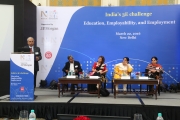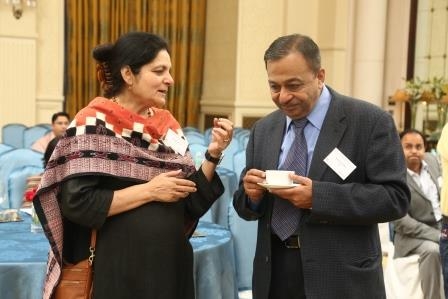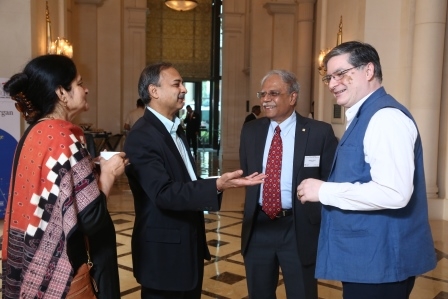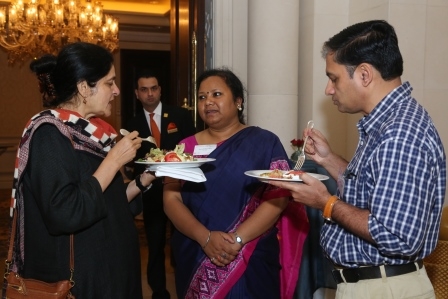NCAER today launched its first research on India’s 3E Challenge- Education, Employability, and Employment under the New Skills at Work India (NSAWI) program. Housed in NCAER’s Labour Economics Research Observatory (LERO), NSAWI is an inaugural research initiative that will look at the skills gap currently affecting the Indian work environment. The two-year research program, supported by J.P Morgan, will focus on education, employability, and employment within India’s job market, looking closely at the employability of potential and current employees, youth aspirations, employer requirements, educational policies as well as how India’s education system looks to equip students with the necessary skills for the work place..
India became a middle-income country in 2007. In PPP terms, it became the third largest economy globally in 2013 after the United States and China. By 2028, it will be the world’s most populous country. The labour force in the industrialized world will decline by about 4 percent in the next 20 years, but will increase by 32 percent in India. This challenge of jobs facing India is daunting. With the world’s youngest population of 730 million people in the working age group of 15-59 years, India will have one million young job-seekers join its labour force every month for the next 20 years. Other countries, in the recent years China, have reaped rich dividends from this demographic transition by employing its young productively. To reap this demographic dividend which is expected to last the next 25 years, India needs to equip its workforce with employable skills and knowledge.
A NCAER survey conducted in 2010–11 asked Chief Wage Earners (CWE) in households about their educational and occupational aspirations. Of the respondents, 53% were satisfied with their level of education but of the 47% who were not, still preferred to gain professional degrees over vocational qualifications. This indicates the possible misperceptions around vocational training as well as the need to ensure it is relevant and meets the requirements in the Indian job market.
Emphasising the skilling challenge that faces India today, Jayant Krishna, CEO, the National Skills Development Corporation (NSDC) remarked, “Only 30 percent of the professional elite, which largely includes engineers, MBAs and so on are employable and if you look at the overall universe of undergraduate and post graduate students then barely 10 percent, of the country as a whole, are employable. Skilling is a challenge whose time has come.”
The NSAWI research will be implemented in three phases. The first phase will create a clearer understanding of the challenges faced in providing and developing the necessary skills for the work place; the second phase will consist of a primary survey assessing workforce readiness in the National Capital Region; and finally a National Urban Survey will be conducted focusing on the foundations that need to be laid in order to help create the correct educational environment that supports the provision of relevant work skills; how institutions can adapt their education programmes to provide the right training; and the kind of policies that need to be introduced in order to support and encourage training within the broader population.
The research will be guided by an advisory panel consisting of S. Ramadorai (the Prime Minister’s Adviser on Skills), Manish Sabharwal (CEO, TeamLease), Rohit Nandan (Secretary, Ministry of Skill Development & Entrepreneurship); Rukmini Banerji (CEO, Pratham Education Foundation), and Pramod Bhasin (Founder, The Skills Academy and Genpact).










